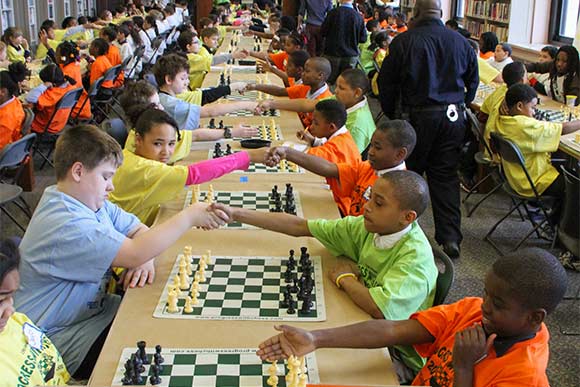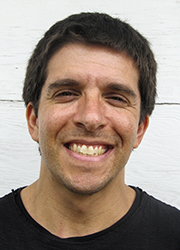Chess program a checkmate for Northeast Ohio students, says founder

Chess is a game that crosses racial, language and socioeconomic barriers, say its players and proponents. South Euclid resident Mike Joelson is doing his part to teach the millennia-old tradition to thousands of Northeast Ohio students.
Joelson is founder of Progress With Chess (PWC), an organization that offers after-school programs and camp-based instruction to 50 regional K-12 schools, reaching about 2,500 students annually. In harnessing a mission to improve the lives of area children and teenagers, PWC works with private schools as well as students from Cleveland's inner-ring suburbs and inner-city.
"We serve the entire spectrum of the community," says Joelson, a card-carrying national chess master who founded PWC as a nonprofit in 2000.
After-school sessions are held one hour per week. Though hourly instruction costs $9 per class, PWC also offers free programming to the Cleveland Metropolitan School District (CMSD), paid through foundational and corporate grants.
"We have more demand than we can fill," says Joelson. "We're always looking for additional funding to help us serve more schools."
Chess skill level doesn't matter, as PWC takes on everyone from newbies to more seasoned players.
"Students are divided into groups based on their age and skills," Joelson says. "We start off showing what the pieces do and how to play a legal game. More advanced students are taught advanced strategies and checkmate patterns."
Young chess charges are taught by two dozen independent contractors, some of them tournament veterans themselves. PWC instructors will be out in force this summer at chess camps in Beachwood, Parma, Westlake, CMSD's Patrick Henry School and elsewhere.
Joelson, who continues to play chess competitively on a local, state and national level, says the grand game embraces higher-level thinking abilities like pattern recognition and strategic planning, along with the critical life lessons of sportsmanship and perseverance.
"Every move you make has consequences, similar to life," says Joelson. "If you lose you're cool early, you'll keep that habit for the rest of the game."
Chess - and by extension PWC - is also a wonderful vehicle for exposing young people to those of different backgrounds.
"Multicultural and multiracial players are sitting in the same tournament and having a dialogue," says Joelson. "It's a win for everyone."

